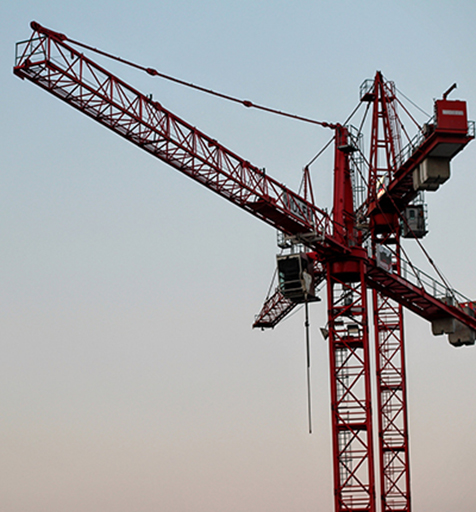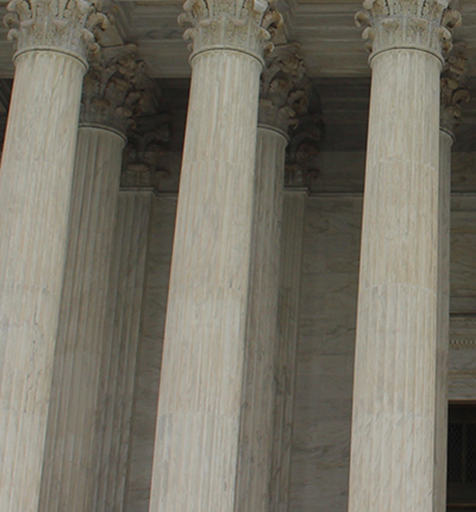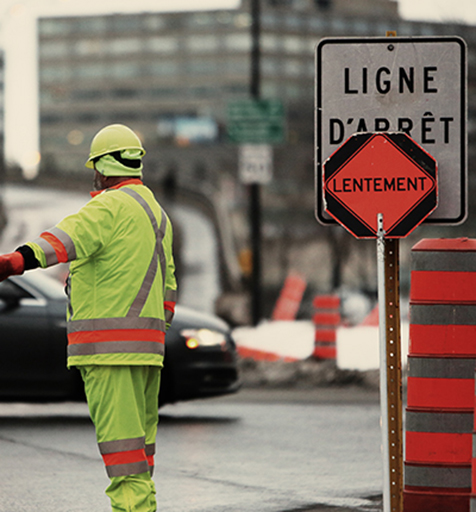Case Details

Cornell Grace Wins Summary Judgment For City In Case With Important Implications To Limiting Labor Law In Street Repairs, Prior Written Notice, And Notice Of Claim Requirements March 21, 2013
The law firm of Cornell Grace, P.C. recently won summary judgment for the City of New York in a case that has major implications in limiting Labor Law claims in street defect cases. The decision also confirms that plaintiffs will not be permitted to effectively convert street defect claims to Labor Law claims where the latter is not pled in the initial Notice of Claim against the City. The opinion was issued by Justice George Silver of the Supreme Court, New York County.
The City had hired one of its contractors to do emergency sewer repair work to a certain sewer catch basin. Plaintiff, one of the contractor’s employees, filed a Notice of Claim alleging that as a pedestrian, he tripped and fell on a street defect down the street from the repair area. He made no mention in the Notice of Claim that the accident was sustained during the course of his work, nor did he reference the New York State Labor Law. The accident report from the time of the accident, in fact, made clear that the plaintiff did not claim he was injured in the course of his work. His subsequent Summons & Complaint made no mention of the Labor Law. It merely repeated that he was a lawful pedestrian and tripped and fell on a street defect.
Plaintiff’s claims, of course, implicated the municipal Prior Written Notice Law. A thorough search of the Big Apple Map and City records showed no prior written notice regarding the alleged hazard that plaintiff set forth. However, later, in his Bill of Particulars, plaintiff attempted to assert a Labor Law violation, and made the first mention that he was injured in the course of his employment. Plaintiff argued that, as a result of the City’s status as an owner or general contractor of the project, the matter was a Labor Law claim and the Prior Written Notice Law did not apply.
After the close of discovery, Cornell Grace moved for summary judgment on behalf of the City, with the proof that there was no prior written notice of the alleged hazard. The plaintiff opposed, acknowledging that there was no prior written notice, but arguing that he also set forth a Labor Law theory of liability in that the trip and fall on the alleged street defect was in a “construction staging area” down the street from the repair work. He argued that that the Prior Written Notice Law should not apply to Labor Law cases. He cited cases regarding the construction and repair of roadways during which construction workers were injured and were allowed to plead the special provisions of the Labor Law against the municipality.
Upon Cornell Grace’s reply papers, as well as additional briefs requested by the Court, Justice Silver’s decision granted the City summary judgment dismissal. The plaintiff had not set forth or implied a Labor Law theory in his Notice of Claim and was therefore barred from pleading it later, even despite testifying at his 50-h hearing and his deposition that he was working at the time of the alleged trip and fall. Furthermore, Justice Silver’s decision made clear that the Prior Written Notice Law applies to Labor Law cases since it applies to “any claim” against the City.
CORNELL GRACE OBTAINS SUMMARY DISMISSAL OF THE CITY OF NEW YORK BASED ON IMMUNITY DEFENSE March 25, 2024
Cornell Grace is pleased to report a summary judgment and appellate win for its longtime client, the City of New York, in a high-value personal injury lawsuit. The case involved a plaintiff who, while training for a marathon, disregarded a “Don’t Walk” sign and was struck by a vehicle in the intersection of 9th Avenue […]
Learn moreCORNELL GRACE DEFEATS SUMMARY JUDGMENT ON LABOR LAW 241(6) CLAIM IN NOTABLE DECISION FOR LABOR LAW PRACTITIONERS August 11, 2023
A worker sued Cornell Grace’s client, a construction manager, claiming he was injured in an unwitnessed accident in which he says he slipped on a patch of ice on the project site. Discovery revealed no other evidence of the alleged ice. The worker alleged violations under the New York Labor Law and moved for partial […]
Learn moreCORNELL GRACE WINS SUMMARY JUDGMENT BASED ON ESPINAL AND CLIENT’S LACK OF DUTY TO PLAINTIFF IN 40-CAR PILE-UP April 11, 2023
Since 2017, Cornell Grace has been defending a subcontractor that was involved in a 40-car accident on the LIE as it was working to assist in cleanup after Hurricane Sandy. Multiple plaintiffs included the subcontractor as a defendant in their actions, even though it did not cause the accident and did not have any direct […]
Learn moreCORNELL GRACE WINS ADDITIONAL INSURED COVERAGE AND IMMEDIATE DEFENSE FOR CONSTRUCTION CLIENTS September 16, 2022
In 2016, Cornell Grace was retained to defend two of its construction clients, an owner and construction manager/general contractor, in a personal injury action brought by the employee of a subcontractor who claimed to have been seriously injured. The worker claimed to have tripped on a piece of electrical wire that appeared to have been […]
Learn moreCORNELL GRACE WINS SUMMARY JUDGMENT IN ELEVEN-YEAR MULTI-MILLION-DOLLAR INJURY CLAIM BY UNION ELEVATOR MECHANIC August 3, 2022
In a case filed in 2011, Plaintiff, a union elevator installation mechanic, claimed he was severely injured when he slipped on oil while unloading a thousand-pound jack from a delivery truck. Among other defendants, Plaintiff sued the elevator company that had loaded the heavy components onto the truck. After fighting for its client for ten […]
Learn moreCORNELL GRACE ACHIEVES HIGHLY FAVORABLE PRE-TRIAL RESULT FOR CONSTRUCTION DEVELOPER CLIENT IN FIRST PARTY INSURANCE DISPUTE WITH CARRIER July 6, 2022
In mid-2021, Cornell Grace, P.C. was retained by a New Jersey-based developer (“Developer”) that had just received a coverage disclaimer from its insurer, a large, well-known general liability carrier. The carrier had been defending Developer for more than two years in a high-value personal injury action arising out of a worksite injury to a subcontractor’s […]
Learn more
CORNELL GRACE WINS SUMMARY DISMISSAL OF TWO SUBROGATION ACTIONS THAT IMPROPERLY TARGETED CCIP/OCIP COVERED SUBCONTRACTORS May 19, 2016
The law firm of Cornell Grace, P.C. often represents owners, developers and prime/general contractors.
Learn more
Cornell Grace Wins Summary Judgment For City In Case With Important Implications To Limiting Labor Law In Street Repairs, Prior Written Notice, And Notice Of Claim Requirements March 21, 2013
This decision has major implications in limiting Labor Law claims in street defect cases.
Learn more
Cornell Grace Wins Appeal In Case Implicating Workers Compensation Bar To Suing Employer, And Summary Judgment Dismissal Of Labor Law Claims Since Plaintiff Was Not A Construction Worker February 13, 2013
Plaintiff claimed injury from an alleged trip over construction materials.
Learn more
Cornell Grace Wins Summary Declaratory Judgment Of Additional Insured Status For Major General Contractor In Catastrophic Labor Law Claim December 2, 2012
One of Cornell Grace’s specialties is insurance coverage litigation.
Learn more
Cornell Grace Wins Summary Judgment In $2.9 Million Interference With Contract Case Against Educational Services Provider January 17, 2012
The law firm of Cornell Grace, P.C. won summary judgment on behalf of its client.
Learn more
Cornell Grace Wins Defense Verdict In Multi-million Dollar Kings County Labor Law Claim June 10, 2010
Firm founder Janet O’Connor Cornell served as lead counsel throughout the five-year litigation.
Learn more


